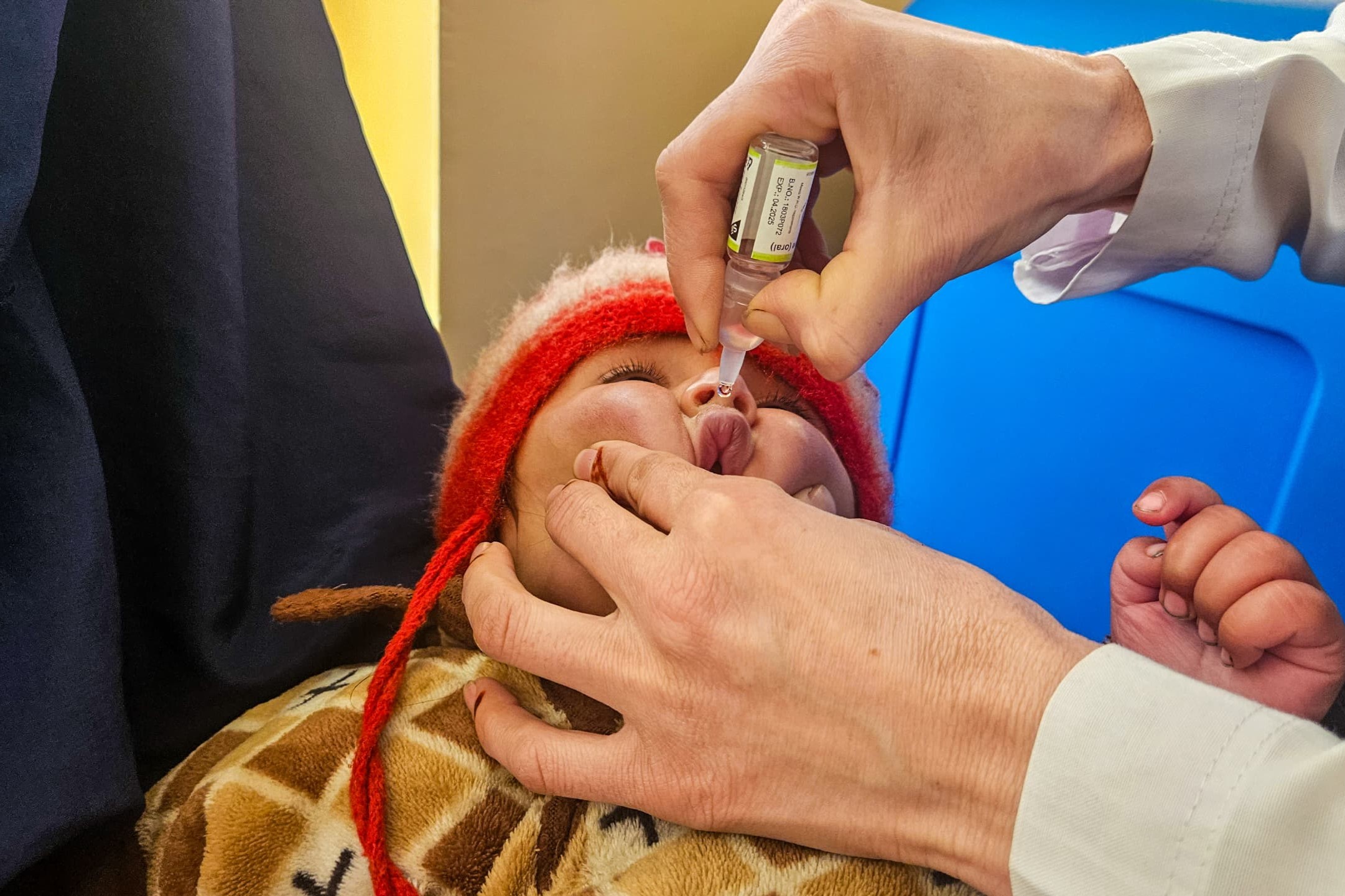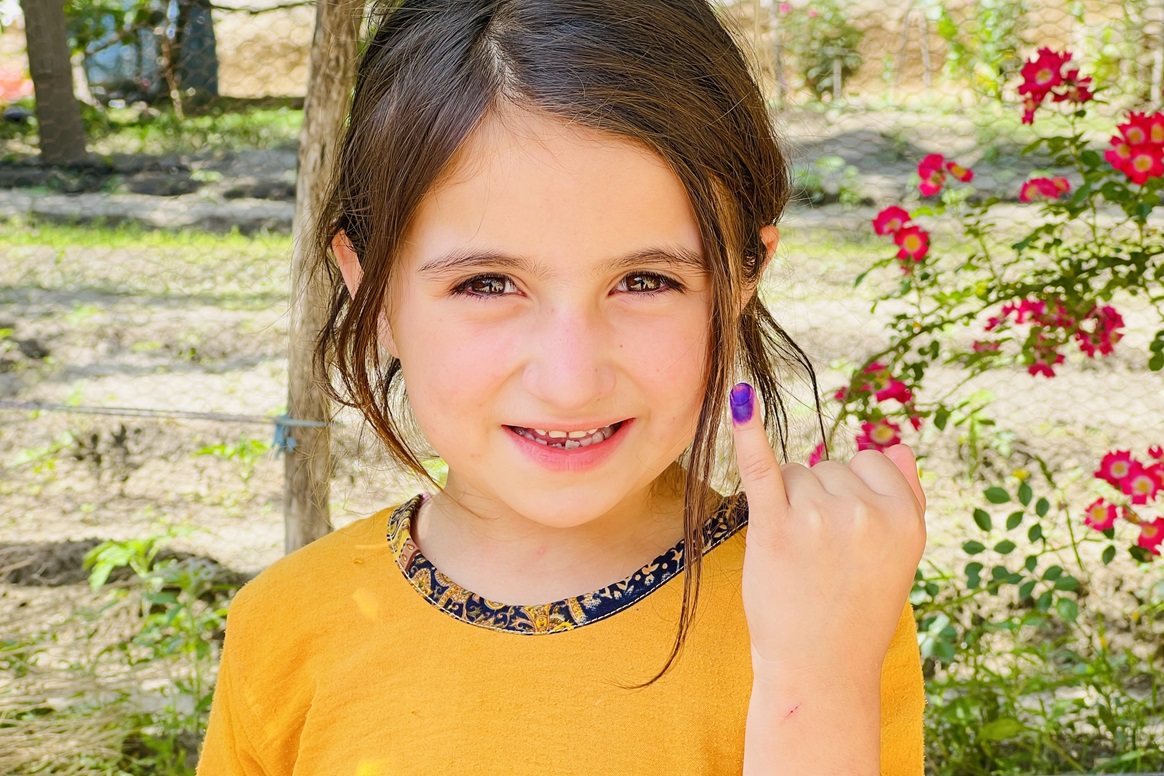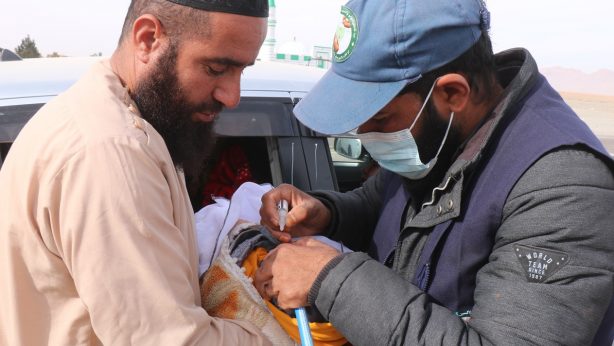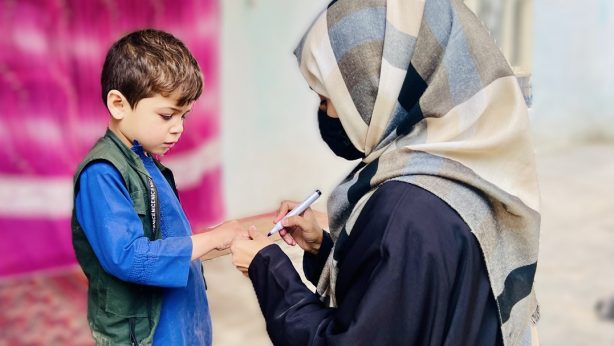From Concerns to Awareness: Efforts to Eradicate Polio in Badakhshan

Raqiba Hamidi
Badakhshan, Afghanistan – Badakhshan, a remote and mountainous province in the northeast of Afghanistan, has been grappling with efforts to eradicate polio for years.
However, these efforts have faced a series of challenges, including misconceptions surrounding the polio vaccine, particularly in remote rural areas.
Fatima, a resident of Yamgan district now living in Rigi village, Faizabad, remarked, “In the past, many families refrained from vaccinating their children against polio due to false beliefs. These misconceptions, particularly common among mothers, often involved fears that the vaccine could lead to infertility or other health issues.”
She added that although in recent times polio eradication campaign teams have dispelled many of these myths through public awareness efforts, some districts like Shighnan, Pamir, Darwaz, and Yamgan still harbor these misconceptions.
In her view, there is a pressing need to expand public awareness efforts to ensure accurate information about the polio vaccine reaches people, encouraging them to safeguard their children by vaccinating them against polio.
 Mawlawi Habibullah, an influential religious scholar in Badakhshan, emphasized the importance of vaccination from a religious perspective, stating: “Islam regards vaccination as a vital and praiseworthy act for the protection of individuals’ health and safety. People need to understand that this act is not only permissible but also encouraged by Islam” © Polio Free Afghanistan/ 2024/ Raqiba Hamidi
Mawlawi Habibullah, an influential religious scholar in Badakhshan, emphasized the importance of vaccination from a religious perspective, stating: “Islam regards vaccination as a vital and praiseworthy act for the protection of individuals’ health and safety. People need to understand that this act is not only permissible but also encouraged by Islam” © Polio Free Afghanistan/ 2024/ Raqiba Hamidi
Limited Resources and Inadequate Health Services
In addition to misconceptions, inadequate healthcare services and limited infrastructure have left many children deprived of vaccines for polio and other preventable diseases.
Zahra Salimi, a social activist in Faizabad, explained that the absence of healthcare services in remote districts like Pamir Kalan and Pamir Khurd has left many children without access to vaccination services.
“We face two major problems in Badakhshan: first, the persistent myths and misinformation about the polio vaccine, which remain deeply rooted in certain communities, and second, the lack of adequate healthcare services, particularly in remote areas, which deprives children of vaccines,” she added.
She mentioned that although the collaboration of national and aid organizations has alleviated some of these issues, much more remains to be done. Public awareness needs to be raised, and health centers should be established in remote areas to provide essential services.
Mawlawi Habibullah, an influential religious scholar in Badakhshan, emphasized the importance of vaccination from a religious perspective, stating: “Islam regards vaccination as a vital and praiseworthy act for the protection of individuals’ health and safety. People need to understand that this act is not only permissible but also encouraged by Islam.”
Local leaders also play a key role in these efforts. Mohammad Salim, a resident of the province, believes that community leaders can serve as a bridge between the people and health authorities, facilitating the spread of accurate information to the population.
He described his experience: “In areas where local leaders support vaccination campaigns, people accept the vaccine more quickly.”
Dr. Ali Ahmad, a pediatric specialist, pointed out that lack of awareness and misinformation are primary reasons for people’s refusal and resistance to vaccines.
He explained that if individuals understand that vaccines are safe and necessary for the health of their children, they would never refuse them.
Dr. Ahmadi also stressed the need to address the infrastructural issues that limit healthcare access in remote areas.
“The government and partner agencies must not only implement awareness programs but also establish health institutions in remote districts to expand healthcare coverage and improve access to these services,” he said.
Conclusion
A healthier future for the children of Badakhshan depends on increasing awareness and strengthening healthcare infrastructure.
With close cooperation between governmental and non-governmental organizations and the active involvement of religious and local leaders, the province could soon witness the eradication of polio and an improvement in public health.


